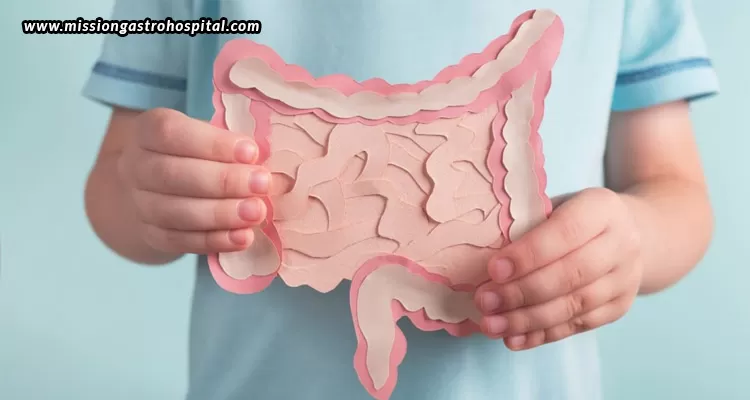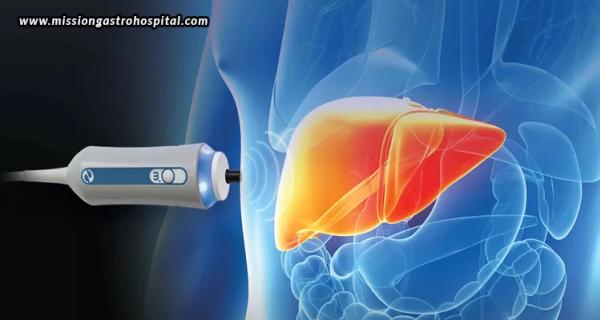Taking care of a child who has gastrointestinal issues can be challenging and stressful. A child’s general health, growth, and quality of life can all be impacted by gastrointestinal issues. It is essential for parents and caretakers to manage the child’s condition by being proactive and knowledgeable. This thorough manual offers helpful advice and techniques to enable you to properly support your child. These tips will enable you to manage the complications of gastrointestinal diseases, from identifying symptoms and knowing nutritional requirements to providing emotional support and fostering a pleasant atmosphere. You can also make sure your child gets the best care possible by being aware of when to seek expert assistance and collaborating closely with medical professionals. By being proactive and well-informed, you can help improve your child’s comfort and well-being, allowing them to live with their condition better.
Understanding common gastrointestinal disorders in children
It’s critical to comprehend common gastrointestinal diseases in order to manage your child’s health and well-being. Below is a summary of some common conditions and how they can be managed.
- Gastroesophageal Reflux Disease (GERD): The signs and symptoms of Gastroesophageal Reflux Diseaseinclude heartburn, chest discomfort, trouble swallowing, and irritation. Raising the head of the bed, providing smaller, more frequent meals, and refraining from eating just before bed are all part of managing GERD.
- Irritable Bowel Syndrome (IBS): The symptoms of IBS include diarrhoea, constipation, bloating, and abdominal discomfort. Keep a food journal to track triggers, promote a fibre-rich, well-balanced diet, drink plenty of water, and, if directed by a doctor, consider eating low-FODMAPS foods.
- Inflammatory Bowel Disease (IBD): The symptoms of IBD include blood in the stool, fatigue, weight loss, and chronic diarrhoea. To effectively manage IBD, a strong collaboration with a paediatric gastroenterologist is necessary to oversee drug administration, track development and nutritional status, and guarantee routine follow-ups.
- Celiac Disease: Symptoms of celiac disease include diminished growth, fatigue, diarrhoea, and weight loss. A rigorous gluten-free diet, teaching your child about gluten-containing foods, and seeking dietary guidance from a dietician are all necessary for managing celiac disease.
Managing gastrointestinal disorders in children
Managing gastrointestinal disorders in children requires a comprehensive approach that addresses symptoms, triggers, and life>
- Daily management: For the sake of your child’s general well-being and gastrointestinal health, you must establish a regular daily routine. In order to assist stabilize their digestive system, this routine should include regular mealtimes, adherence to medication regimens, and regular sleep patterns. Make sure school personnel are aware of your child’s GI condition and any special needs by establishing tight coordination with them. Give the school a thorough care plan that includes your child’s food restrictions, medication regimens, and emergency contacts to make sure they get the help they need while in class. Regular physical activity may help your child’s digestion and general health, so encourage them to do so. To keep your child happy and properly support their GI health, choose activities that they can engage in without difficulty. You may improve the quality of life and manage your child’s GI issue by creating a disciplined schedule, working with school staff, and encouraging physical exercise.
- Dietary management and nutrition: To promote general health and digestive function, make sure your child eats a balanced diet that includes a range of fruits, vegetables, lean meats, and whole grains. A customized meal plan that satisfies your child’s nutritional needs and takes into account any dietary limitations pertaining to their gastrointestinal condition should be planned and followed. Encourage your kid to drink plenty of fluids, especially water, to prevent dehydration. Caffeine and sugar-filled drinks can exacerbate gastrointestinal symptoms. Consult your healthcare professional about the requirement and proper dosage of supplements like vitamins, probiotics, or fibre to support your child’s digestive health. Collaborating together with medical specialists guarantees your kid gets all-encompassing treatment catered to their own requirements, which encourages improved management of GI disorders.
- Emotional and psychological support: It’s important to talk to your child about their gastrointestinal issue; let them share their thoughts and feelings freely and reassure them that they are not the only ones dealing with their disease. Teach your child about their particular GI condition and its symptoms, causes, and practical treatment techniques. Give your kids the tools they need to stand up for themselves by helping them recognize and articulate their demands, especially in social and academic contexts. Incorporate stress-reduction methods such as yoga, mindfulness, or deep breathing exercises to assist your kid in managing their worry and tension, as these can worsen gastrointestinal problems. You may assist your kid in successfully managing their GI condition and enhancing their general well-being by encouraging open communication, educating oneself, and engaging in stress-relieving activities.
- Recognizing and managing flare-ups: If you want to help your child with gastrointestinal (GI) diseases, it’s important to recognize and control triggers. Maintain a symptom journal to monitor and identify possible triggers, which include frequently certain meals, stress, and insufficient sleep. Make a flare-up management strategy that incorporates comfort measures or prescription medicines. Maintain regular contact with your child’s physician in order to discuss any worsening symptoms or lack of progress. Maintain a list of important contacts, such as medical professionals, and be aware of the location of the closest medical institution to ensure that you are prepared for any emergency. Keep a travel kit packed with the essential drugs and equipment for excursions and travel to successfully handle any unplanned flare-ups. You may enhance your child’s support system by proactively recognizing triggers, creating a reaction plan, and being ready for emergencies.
When to seek professional help?
While home management strategies are vital for addressing gastrointestinal disorders in children, there are instances where professional intervention is necessary. If you notice any of the following: severe stomach discomfort, blood in the stool, chronic vomiting or diarrhoea, considerable weight loss or failure to thrive, consult your child’s healthcare professional, as these symptoms can suggest that a professional gastroenterologist is required for a thorough assessment and treatment plan. Consider consulting with healthcare professionals at Mission Gastro Hospital, the best gastroenterology hospital in India, for expert care and personalized treatment plans. The dedicated team here can provide the guidance and support required to navigate the challenges of your child’s gastrointestinal disorders, ensuring your child receives the best possible care.




